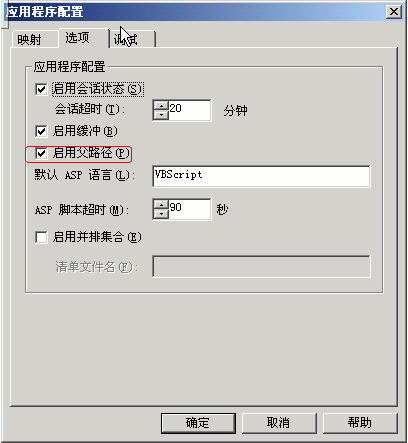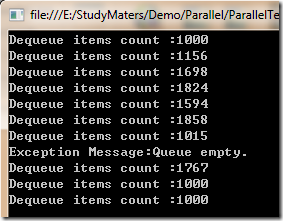.Net那点事儿系列:System.IO之Stream
Stream在msdn的定义:提供字节序列的一般性视图(provides a generic view of a sequence of bytes)。这个解释太抽象了,不容易理解;从stream的字面意思“河,水流”更容易理解些,stream是一个抽象类,它定义了类似“水流”的事物的一些统一行为,包括这个“水流”是否可以抽水出来(读取流内容);是否可以往这个“水流”中注水(向流中写入内容);以及这个“水流”有多长;如何关闭“水流”,如何向“水流”中注水,如何从“水流”中抽水等“水流”共有的行为。
常用的Stream的子类有:
1)MemoryStream 存储在内存中的字节流
2)FileStream 存储在文件系统的字节流
3)NetworkStream 通过网络设备读写的字节流
4)BufferedStream 为其他流提供缓冲的流
Stream提供了读写流的方法是以字节的形式从流中读取内容。而我们经常会用到从字节流中读取文本或者写入文本,微软提供了StreamReader和StreamWriter类帮我们实现在流上读写字符串的功能。
下面看下如何操作Stream,即如何从流中读取字节序列,如何向流中写字节
1. 使用Stream.Read方法从流中读取字节,如下示例注释:
view sourceprint?01 using System;
02 using System.Collections.Generic;
03 using System.Linq;
04 using System.Text;
05 using System.IO;
06
07 namespace UseStream
08 {
09 class Program
10 {
11 //示例如何从流中读取字节流
12 static void Main(string[] args)
13 {
14 var bytes = new byte[] {(byte)1,(byte)2,(byte)3,(byte)4,(byte)5,(byte)6,(byte)7,(byte)8};
15 using (var memStream = new MemoryStream(bytes))
16 {
17 int offset = 0;
18 int readOnce = 4;
19
20 do
21 {
22 byte[] byteTemp = new byte[readOnce];
23 // 使用Read方法从流中读取字节
24 //第一个参数byte[]存储从流中读出的内容
25 //第二个参数为存储到byte[]数组的开始索引,
26 //第三个int参数为一次最多读取的字节数
27 //返回值是此次读取到的字节数,此值小于等于第三个参数
28 int readCn = memStream.Read(byteTemp, 0, readOnce);
29 for (int i = 0; i < readCn; i++)
30 {
31 Console.WriteLine(byteTemp[i].ToString());
32 }
33
34 offset += readCn;
35
36 //当实际读取到的字节数小于设定的读取数时表示到流的末尾了
37 if (readCn < readOnce) break;
38 } while (true);
39 }
40
41 Console.Read();
42 }
43 }
44 }
2. 使用Stream.BeginRead方法读取FileStream的流内容
注意:BeginRead在一些流中的实现和Read完全相同,比如MemoryStream;而在FileStream和NetwordStream中BeginRead就是实实在在的异步操作了。
如下示例代码和注释:
view sourceprint?01 using System;
02 using System.Collections.Generic;
03 using System.Linq;
04 using System.Text;
05 using System.IO;
06 using System.Threading;
07
08 namespace UseBeginRead
09 {
10 class Program
11 {
12 //定义异步读取状态类
13 class AsyncState
14 {
15 &
补充:Web开发 , ASP.Net ,




